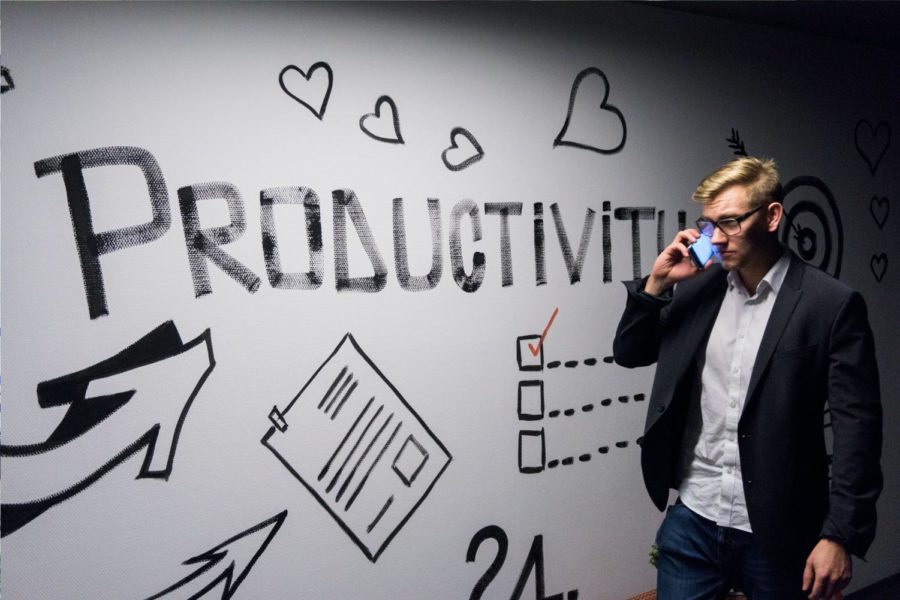Tyrrell: There are more important things in life than work
April 7, 2021
Every day, my roommate and I have a conversation that goes something like this.
Me: Hey, how’s your day been?
My roommate: Good, I’ve actually been so productive today! How about you?
Me: Eh, not so great; I haven’t really gotten anything done yet.
Or perhaps it’s the other way around, and I’m the productive one. Or maybe neither of us is having a “good” day. You get the point. However the conversation spins, it’s always — I mean, 98 percent of the time — centered around our internal punch clocks. A good day means the Amazon warehouse manager of my mind is happy. A bad day means I’m committing time fraud. The amount of sheer stuff that gets done each day has become a kind of shorthand for the quality of that day, with no time to stop and think about whether that makes for a good quality of life.
In reality, a huge proportion of Americans are stuck in jobs they don’t like. Why, then, have we designated the amount of hours we spend working each week as our measuring stick for success? Why don’t we place more value on, say, the amount of hours we spend on our hobbies, with friends and family and resting?
I certainly find the time that I spend doing those things more fulfilling and enjoyable than when I’m clocked into Workday. Yet I often feel a vague sense of guilt when I choose to get a full night of sleep or when I spend my weekend relaxing rather than slaving away on schoolwork. After all, Elon Musk sometimes works 120 hours per week. If I truly want to be successful, maybe I should strive to be more like him.
This laser focus on productivity and time spent working is neither new nor uniquely American, but it does seem to have taken on a new level of monstrosity in the last year, with the pandemic blurring the line between work and home.
The advent of working from home and Zoom calls on top of an already huge technological sector devoted to productivity makes it all the more possible to simply never stop working. In fact, the last thing I do before bed and the first thing I do in the morning, almost every single day, is check my email on the Gmail app. Do I enjoy doing this? No. But ignoring the looming possibility of a critical work or school update feels even worse.
The ironic (and super obvious) part of all this is that pushing people to maximize their work hours and never truly clock out just serves to make workers more burned out and less effective. Research suggests that decreasing mandatory work hours often serves to boost productivity; in other words, workers can get just as much work done in 35 hours as they can in 40. And luckily, some countries and organizations are starting to recognize this.
New Zealand recently experimented with a 32-hour workweek (while still paying employees for 40 hours) and is now considering making the policy permanent. The city of Provo, Utah, has functioned on a four-day workweek for years. Not all workweek cuts have been successful; in some instances, transitioning to a shorter workweek has resulted in layoffs and higher deficits. But I think the key here is starting the conversation about what type of hours and work schedules are actually effective and which ones are just doing more harm than good.
When you’re expected to be available to co-workers and managers 24/7, you aren’t actually working from home; you’re just living at work. Call me crazy, but I don’t want to live like that. It’s time that we start prioritizing smart and sustainable ways of working rather than the nightmarish hellscape Elon Musk lives in.
I’ll go first. I’m never answering a “How are you?” question with an answer about my productivity levels again.







